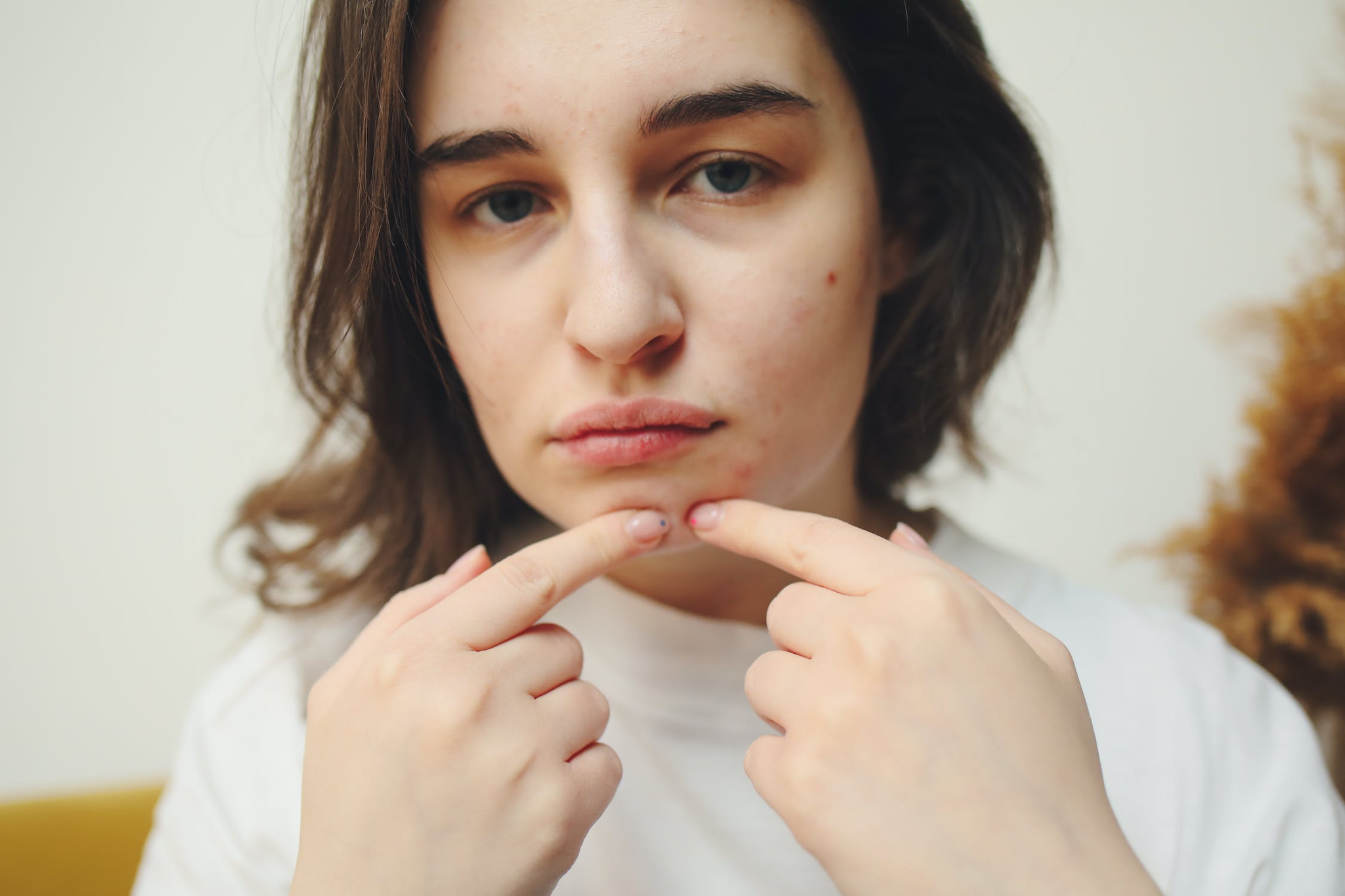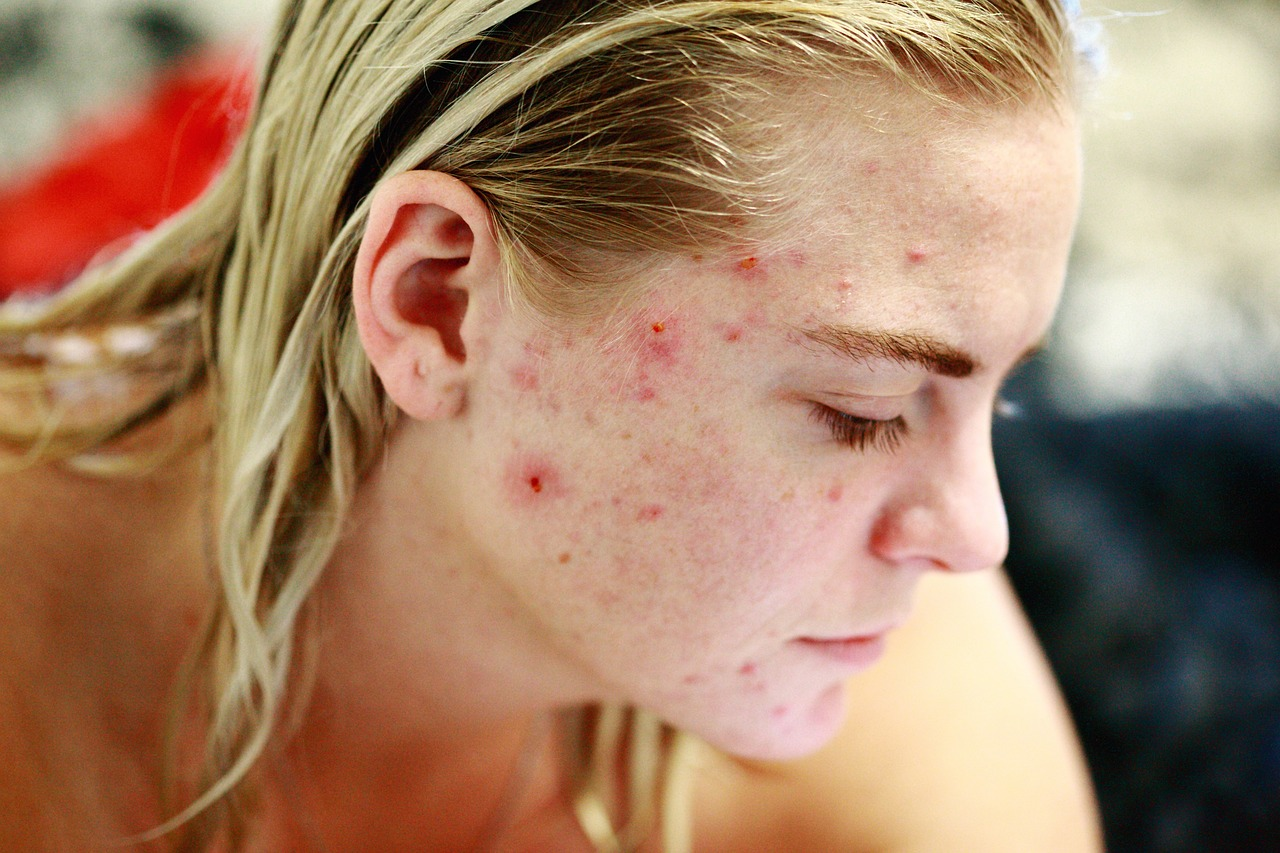Is That Really Just A Pimple?

Everyone has pimples at one point or another in their lives. These breakouts are quite unsightly and embarrassing but are not more concerning than that. However, sometimes, a seemingly innocuous-looking pimple but actually be another skin condition that might not be resolved as easily as a zit.
Skin Conditions That Look Like Pimples
Let’s take a look at some of the skin conditions that may be mistaken for pimples. By diagnosing skin problems earlier, you can get treatment early and recover faster.
Folliculitis
Folliculitis is characterized by tiny bumps that are a result of hair follicles swelling up. Hair follicles may swell up due to a bacterial or yeast infection and can cause tiny bumps anywhere on your body, but most commonly on the legs, neck, armpits, and buttocks.
Outbreaks may be triggered by factors like sun, heat, stress, smoking, and alcohol.
Staph
Staph bacteria can result in large, painful bumps that may be mistaken for acne. Inflamed skin lesions and blemishes are the most common symptoms of staph infection and can be treated with antibiotics. However, if the bacteria gets into the bloodstream, organs, joints, or bones, it can result in sepsis, a serious life-threatening condition.
Skin Cancer
Skin cancer may appear like small, pink bumps in its early stages and might have brown, blue, or black areas. Pink bumps with raised edges and a depressed center might also be cause for concern. Open sores that do not heal in two weeks or keep recurring might also be a sign of skin cancer.
If you have skin conditions like these, it is important not to brush them off. Skin cancer is treatable in its early stage but can become deadly if it is allowed to spread.
Periorificial Dermatitis
Periorificial dermatitis is a skin condition that results in tiny clusters of itchy and sore bumps on the face, typically near the mouth and nose.
Typically, this condition is caused by the overuse of topical steroids or prescription steroid sprays that are inhaled through the nose and mouth, some types of toothpaste, and rich face creams. The symptoms usually go away when you stop using the irritants, though your physician may also prescribe some simple antibiotics for them.
Molluscum Contagiosum
Molluscum contagiosum is a virus that can cause pimple-like lesions or doughnut shaped bumps on the skin. This condition is caused by a pox virus and, as its name implies, is quite contagious and can be spread from one person to another via casual, direct contact.
The condition is harmless and can go away on its own, though in some people, it can take as long as six to 18 months.
Keratosis Pilaris
Keratosis pilaris is a genetic condition that is quite common. It is characterized by small, hard bumps on your skin that look like a rash and make your skin feel rough and gritty.
The condition typically occurs when you do not exfoliate your skin normally and results when keratin blocks your pores. These bumps are usually light-colored and typically pop up on your arms. The condition is easily treatable by using keratolytic agents like salicylic acid.

Chickenpox
Chickenpox is caused by the varicella-zoster virus. Typically, symptoms start to appear 10 to 20 days after exposure and include round fluid-filled blisters on the skin that look very similar to pimples. The virus also causes a fever and body aches and pain.
Although the symptoms of chickenpox are worse in adults, the condition can resolve itself in a week without any special treatment.
Benefits of Telehealth for People With Pimples or Skin Problems
The good thing about skin conditions is that many of them can be diagnosed easily by sight. This means telehealth plays a valuable role in treating patients with skin conditions.
A visit to a virtual doctor is comfortable, safe, and convenient – all you need is a phone or laptop and an internet connection. With telehealth, you can speak with an online doctor without traveling to a clinic. This saves time and money.
At TelMDCare, our telemedicine doctor can perform a skin condition diagnosis and recommend an appropriate course of action for your ailments by visually inspecting your skin. If necessary, your online doctor may also recommend an in-person visit if they suspect a more serious condition; however, most skin problems are easily diagnosed and treated through online visits.
Are you interested in speaking to a doctor online?
Schedule a consultation with Dr. John Ibrahim at TelMDCare today. We offer affordable consultation rates for people without health insurance and those with varying residency permits.